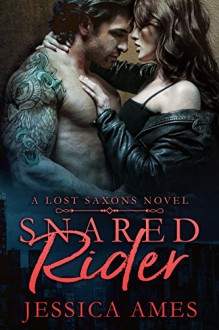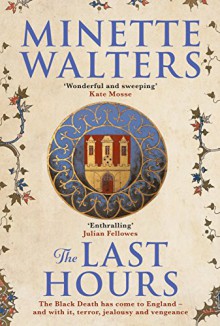
Reviewed by Angels With Attitude Book Reviews
5 stars from us
Arc copy provided for honest review



















Godwine has risen from humble beginnings to become one of the most powerful men in England, but with power comes jealousy.
Godwine finds a wandering Dane in the woods and taking him back to his house, they feed the man. Come to find out he is a Jarl for the Danes. Godwine ends up leaving with the Jarl, taking him back to his own ships, and then sailing away with them. As he watches England fade into the distance he wonders where his future will lead.
Coming into manhood in the service of the Danish king, he grows into positions of power. Serving through the kingdoms of FOUR kings, he incurs the wrath of Edward. Fleeing England, he waits for the correct timing to return, and make his position clear. He is hoping to regain his lost earldom, correct the wrongdoings in the nation, and rid the nation of the unwanted Norman advisors which are turning the king down the wrong path.
I really enjoyed this read, it was fantastic and kept me hooked from start to finish. I am looking forward to reading the next book in the series!

I have to assume that a large majority of you studied the epic poem, Beowulf, when you were in high school. If you recall, this is often cited as the oldest example of an epic poem in Old English and it tells the story of the hero, Beowulf, who comes to aid a king who is plagued by a monster known as Grendel. It goes on to discuss Beowulf's homecoming and his continuing adventures (with a dragon no less). All I remember of the poem was a fight in a cave. (Clearly I was unimpressed with this work's historical lineage.) So it might come as a surprise that when I saw Grendel by John Gardner I was intrigued by discovering that it was a kind of retelling of the poem in narrative format...from Grendel's point of view. Straight out of the gate, this was an absolutely bizarre piece of literature. I came away from it thinking that it was too cerebral for me (Farewell hubris!) because there were many times I felt like I had absolutely no clue what was going on. I think part of this lies with the narrative style which mixed Old English language (like the original) with contemporary phraseology (curses galore, ya'll). I was nearly tempted to reread Beowulf for reference. (Spoiler alert: I didn't.) This is a philosophical novel that ponders the nature of existence and what it actually means to be 'good' or 'evil' because for something to be truly 'good' there needs to be a corresponding 'evil' to balance it...right? Grendel is a classic example of an antihero but boy does he jaw on and on and on about his place in the universe. I found him bitter and whiny but I don't know if that's due to characterization or if it's the author's 'voice' projected onto the character. I guess I'll have to decide if I want to read more of Gardner's works to find out the answer. It's hard for me to sum up my feelings on this one other than to say it wasn't an especially enjoyable time and I don't know who I'd recommend this one too because it's very niche. It's a 3/10 for me.
What's Up Next: The Great Questions of Tomorrow by David Rothkopf
What I'm Currently Reading: Mine Own Executioner by Nigel Balchin (and also Scythe which apparently I'm never going to finish)

Thanks to Atlantic Books, Allen & Unwin and to NetGalley for offering me an ARC copy of this novel that I freely chose to review.
Although Minette Walters is a familiar name, I have not read any of her crime fiction, so I can’t really compare this historical novel to her previous work, but after reading this I’ll check them out for sure.
I was intrigued by this novel, partly because of the author, but also because I had recently read a novel set during the period of the Black Death and was curious to read more on the subject.
The author sets the novel in Develish, an estate in Dorsetshire (there is not such a village in present-day Dorset, although there is one called Dewlish that I wonder if it might have been the inspiration for the one in the book), on the brink of the arrival of the plague to England. Sir Richard is away from the estate, trying to arrange the marriage of his daughter, Lady Eleanor, and although he tries to return home when he realises people are dying, it is too late for him. His wife, Lady Anne, who was educated in a convent and knows about healing, herbs, and letters, takes control (she already was managing the estate, although always unofficially, as her husband did not know how to read or write and thought that flogging or whipping his serfs was all that was required) and isolates the estate, moving all the farmers and serfs inside the walls of Sir William’s manor house —set apart from the village houses and the fields by a moat— and ensuring that her sanitation and hygiene rules are followed. Nobody really knows how the disease spread but her measures seem to work, although not everything is well in Develish.
The story is fascinating because of the complexity of the characters, the power struggles (there are clear differences between the Norman lords and the Saxon population, with the Normans being shown as abusive stuck-up individuals whilst the Saxons do all the work, and there is much discussion about taxation, indentured conditions, education…), the social order of the era, and the added difficulties of trying to confine two hundred people in a small space, ensuring the peace is maintained, and keeping their spirits up.
Lady Anne keeps records, with the intention of leaving a written account of what happened in case they all perish, so others might learn from their experiences, but she also keeps a more personal account, and at times it is clear that what she writes is an edited version of the truth, although always for good reasons. Her sensibilities seem very modern. She does not treat people according to their birth but to their actions, her religious ideas are out of keeping with the period (she has no respect for priests and dismisses any attempts of blaming the illness on people’s lack of faith or sinful behaviour) and she does show a great deal of understanding and hindsight of how the spread of the plague will revolutionise the social situation, bringing new opportunities to the skilled workers who survive (as there won’t be enough people to do all the jobs and that scarcity will allow them to negotiate better conditions). She is one of the most interesting and important characters of the novel, together with Thaddeus Thurkell, a young man (only eight years younger than her, as she was married at fourteen) of unknown parentage whom she has taught and protected from childhood and who seems as out of place as she is. At some point in the novel, due to the murder of his half-brother, he leaves the demesne with five young boys and we follow their adventures too, learning about the fate of other estates and villages, and getting more insight into the character of Thaddeus and his young assistants.
Sir William dies early in the story, although he is much talked about through the rest of the novel. He is an evil character with no redeeming features, although we don’t realise quite how bad he really was until close to the end of the novel (but we probably suspected it). Personally, I prefer my baddies greyer rather than all black. Lady Eleanor is another one of the characters that I found problematic. She is her father’s daughter, spoilt and cruel, dismissive of serfs and with a sense of entitlement not based on any personal qualities. Again, there are no redeeming features apparent in the girl, although her behaviour made me consider some psychiatric diagnoses (borderline personality disorder seems likely) and towards the end, I felt sorry for both, her and Lady Anne, as they are boxed into a corner with no easy or satisfactory way out. There are many other secondary characters, although very few of them are given enough individual space for us to get to know them (apart from the priest, Isabella, and Giles) but the author manages to create a realistic sense of a community growing and evolving thanks to an enlightened leader, united by their faith in Lady Anne, and facing together the challenges of their difficult situation.
The story is told in the third person but each chapter or fragment of the story is told from one of the characters’ point of view. This is not confusing and serves the story well, helping give the readers a sense of control (and also increasing the tension, as at times we believe we know the truth because we know more than some of the characters, but we do not realise we are missing important pieces of information). The book recreates the historical period without being too heavy on descriptions. We learn more about how society worked than about every little detail of clothing and food (but there should be enough information for fans of historical fiction to enjoy it, although I am not an expert in the era and not all reviewers agree).There are some funny moments (like when they see a cat for the first time and believe it is a monster), some battles, fights, scary moments, secrets galore, and plenty of intrigues, but it is not a fast page-turner and there is a fair amount of time dedicated to the politics and social mores of the era (that, for me, was one of the most enjoyable aspects of the story). I felt the novel progressed at a good pace, but I would not recommend it to readers looking for a story full of action and adventures.
I enjoyed the novel, in particular the historical background, the psychological portrayal of the characters (the bad characters are just bad, while the good characters are fairly complex and not all good, and there is plenty of room for further development) although I did have doubts as to how in keeping with the historical period some of the attitudes and the ideas expressed were, but my main issue was the ending. As many people have commented on their reviews, it is never mentioned that this is book one and not a full-story and then the book ends up with a to be continued. After so many pages, the ending of the novel felt rushed, and although the story stops at an inflection point, there are many questions to be answered and I suspect most readers will feel disappointed.
An interesting incursion into the historical fiction genre by the author, and one that will make readers wonder about what freedom really means, the nature of power, and how much (or how little) life has changed since.